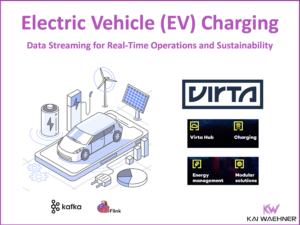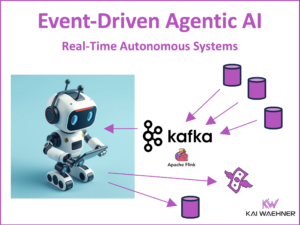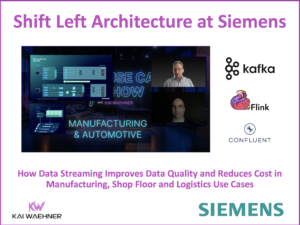Today, I was at the “Atlassian Unite 2012 London”, a one-day event of Atlassian (http://www.atlassian.com/company/about/events/unite/2012). As the slogan says “Atlassian Users of Europe, Unite!”, it was a community event for users of Atlassian products. I guess about 200 people attended. Two other events will follow in Paris and Frankfurt.
The Company
Atlassian is a software company based in Sydney, Australia which makes software targeted for software developers. Atlassian’s best known products are JIRA (bug tracking) and Confluence (Wiki). Besides, Bamboo (continuous integration) and Crowd (Web Single-Sign On) are used often.
IMO, the greatest benefit of Atlassian products is its ease of use. Several awesome plugins and extensions are available (e.g. Greenhopper for Scrum support in JIRA or Gliffy as a Microsoft Visio-like designer in Confluence). Due to these benefits, my company uses these products internally. Most of our customers use them for projects, too. I do not see any reason why I would use another wiki or bug tracking system such as Bugzilla or Trac in the future in another project.
Atlassian made an intelligent strategic move by offering all of its products for free for open source projects. Besides, small license packages are very cheap (10 USD for 10 users per month). Thus, most people already know Atlassian products.
The Agenda
Here is the agenda of this one-day event:
8:00AM – 9:00AM
Registration
9:00AM – 10:00AM
Unite Welcome
Mike Cannon-Brookes, Co-Founder and CEO
10:00AM – 10:30AM
JIRA 5 and Beyond
Bryan Rollins, JIRA Product Manager Team Lead
10:30AM – 11:00AM
Confluence Roadmap Updates and Practical Adoption Techniques
Matt Hodges, Confluence Product Marketing Team Leader
11:00AM – 11:15AM
Break
11:15AM – 11:45AM
DVCS in the Enterprise: How Atlassian Made the Switch
John Stevenson, Atlassian Ambassador
11:45AM – 12:15PM
Sponsor Lightning Talks
12:15PM – 2:00PM
Lunch + Birds of a Feather
2:00PM – 2:30PM
Confluence – Communities of Practise in a Large Enterprise
Ole Kristensen, Lead Conultant, Grundfos
2:30PM – 3:00PM
Using JIRA for Agile Scrum
Michelle Lorenz, QA Manager, Itslearning
3:00PM – 3:15PM
Building the Atlassian Community in the UK
John Stevenson, Atlassian Ambassador
3:15PM – 3:30PM
Break
3:30PM – 4:00PM
Sponsor Lightning Talks
4:00PM – 4:30PM
Scalability of JIRA and Confluence in Agile Enterprise Software Development
Aidan Johnstone, Technical Project Manager, Telefónica Germany
4:30PM – 8:00PM
Beer O’Clock
The agenda had no real surprises for a vendor event, nevertheless some interesting sessions. If you do not think so, you have to wait for the “Beer O’Clock” at 4.30PM …
The Sessions
The sessions were short and diverting due to a good presentation style of all presenters. Atlassian guys presented their products, customers talked about the usage in enterprise projects, and sponsors had short five-minute lightening talks. IMO, that’s a good solution. It was interesting, but nobody gets bored by too much marketing stuff.
The Content
Some sessions were really interesting. Of course, a lot of time was spent to present new product features, especially of JIRA and Confluence. Though, that’s ok for an Atlassian community day, I did not expect anything else. The new features are listed on Atlassian’s Website, so I will not go into more detail here. I only want to mention one cool new feature of JIRA: The JIRA Import Manager can import data from your legacy bug tracking system such or Bugzilla or Trac directly, or use csv files if there is no other interface. Therefore, you can consolidate your enterprise-wide bug tracking landscape easily.
Fortunately, there was a lot of non-marketing content, too. Atlassian showed some best practices how they use their own tools. Especially, I like the idea to use Confluence to plan meetings. They create one page for each meeting. They write down the agenda, add attachments, etc. This will save a lot of emails. Besides, every participant always sees the newest status of the meeting and up-to-date documents.
Some sessions of Atlassian customers and sponsors were very interesting, because the speakers reported some problems which had to be solved in their projects. Some users have very much data within one JIRA instance (e.g. 500.000 issues). Scalability issues occurred. Load time took unacceptable 30 seconds each time in one example (stated by adaptavist which is a consulting company specialized for Atlassian products.
Telecónica talked about his JIRA project which has 54 projects, 180 custom fields, 450 users and 17 (!) administrators. They had scaling and organizational problems due to this situation. Their recommendation is to use several small JIRA instances instead of one big instance to avoid these issues. A guy from the audience proposed to use an available audit plugin. By the way: Atlassian was aware of scaling problems in large instances. Therefore, one of the major goals of JIRA 5 was to improve performance.
A progress report of “Grundfos” also descibed some problems. The company uses several plugins, which sum up to a total cost of over 70.000 Euro. They cannot upgrade from Confluence 3.x to 4.x because over 40 plugins are not compatible yet, although Confluence 4.0 already released six months ago. The speaker said that a predictable future is necessary for large companies to adopt Atlassian products (I agree). The speaker asked for a stable API and plugin system. Maybe the new Atlassian marketplace is heading into the right direction.
Unfortunately, there were no sessions about other Atlassian products such as Crowd or Bamboo.
The Miscellaneous
Some more notes (in no particular order) with information I did not notice before:
- Atlassian Experts are people who are “certified” to help with Atlassian products: http://www.atlassian.com/resources/experts
- The Atlassian On Demand Platform offers Atlassian products in the cloud
- Atlassian Marketplace will come soon to help find, try, buy and manage plugins (IMO, the MANAGE part is the most important one)
- HipChat (acquired by Atlassian some weeks ago) is a chat room for business projects, public or private, including mobile and video support. It will be integrated into Atlassian tool stack soon. Customers can try it for free for six months for free: http://blog.hipchat.com/2012/03/07/weve-been-acquired-by-atlassian/
- JIRA Issue Collector offers an easy integration of JIRA into your web applications, i.e. users will create issues automatically, when “complaining” about problems with your web application
- Atlassian uses a distributed version control system (DVCS) instead of Subversion for development. Of course, they use their own products: BitBucket and SourceTree. From Atlassian’s experience, a DVCS helps a lot, especially in open source projects, which have many committers and code changes
The Location
The Brewery was a nice location (http://www.thebrewery.co.uk/). Though, it had some minor and one major problem (the last one is the major one):
- Seats were very very close to each other. Therefore, it was uncomfortable. If you wrote down some notes, your neighbor recognized it. Probably, I am spoiled by awesome locations such as Jazoon (which is organized in a huge cinema in Zurich).
- The coffee was used up when I arrived five minutes after the keynote has started. It was not refilled till hours later.
- This was the first time in my life that a waitress said to me the following at a buffet: “Sorry sir, you are only allowed to take one OR the other.”
- The last problem occurs at several conferences and is an absolute no-go: Many people could not see the presentation slides completely respectively reading all of its content. There was a small screen in the front and two small LCDs in the middle. I was in the last row in the first session because my flight was late. Due to a flat room, I could only see the head of the man in front of me. Though, the screen was too small / far away anyway – even without that head, I could not have read anything. After the first break, I took a seat in the third row…
The Sponsors
The event had eight sponsors. I have never heard even one of these names. Though, some of them offer interesting plugins for Atlassian products, therefore you might take a look if one of them is interesting for you:
adaptavist, ALMWorks, clearvision, EQUION, flowdock, Go2Group, One point and zen. My favorite (from the view of a systems integrator) was Go2Group, which offers several connectors for other products such as HP Quality Center, SugarCRM, Salesforce, and others.
The Conclusion
Atlassian Unite 2012 London was a success. I can recommend such community days to everybody – also of other “open source vendors” such as JBoss or FuseSource. You can learn a lot about products you use every day in your daily job and connect to like-minded people. The costs are very low. The locations usually have got very good airport and train connections. Therefore, a one-day trip is possible. Or if you wish, you can add a day of vacation to do some sightseeing in a great city…
Best regards,
Kai Wähner (Twitter: @KaiWaehner)





